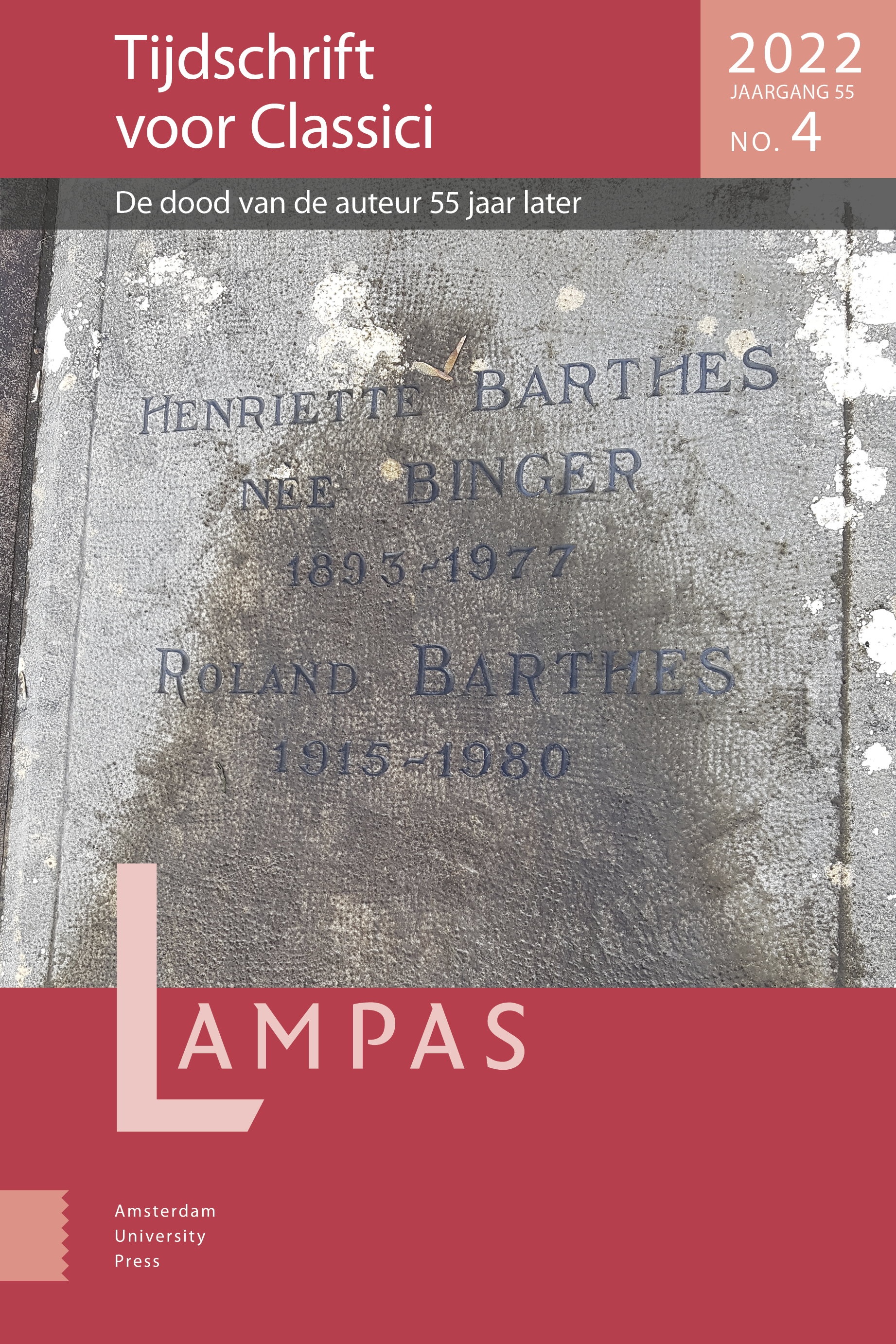-
oa Flavius Josephus op de sofa?
Het karakter van Josephus tentoongesteld in Uit mijn leven
- Amsterdam University Press
- Source: Lampas, Volume 55, Issue 4, Nov 2022, p. 404 - 421
-
- 01 Nov 2022
Abstract
Until recently, scholars have mainly studied the autobiographical practices of Flavius Josephus to recover the life and thought of this Jewish author. The controversial aspects of Josephus’ life story have resulted in a clear bias of some scholars against this Jewish historian and doubts about his motives for writing so elaborately about his past. The present article breaks with this trend by offering a literary analysis of Josephus’ self-presentation as author of, and literary character in, the Life, an autobiographical text which was originally appended to the Jewish Antiquities. First, I discuss the nature of character (ἦθος) in ancient rhetoric and its potential relevance for interpreting historiographical texts. Using this interpretive framework, I examine several key passages from the Life – in particular the apologetic digression addressed to Justus and the inhabitants of Tiberias – and interpret these in light of the literary relationship of the Life with the Antiquities and the claims to authority Josephus advances in that text.


